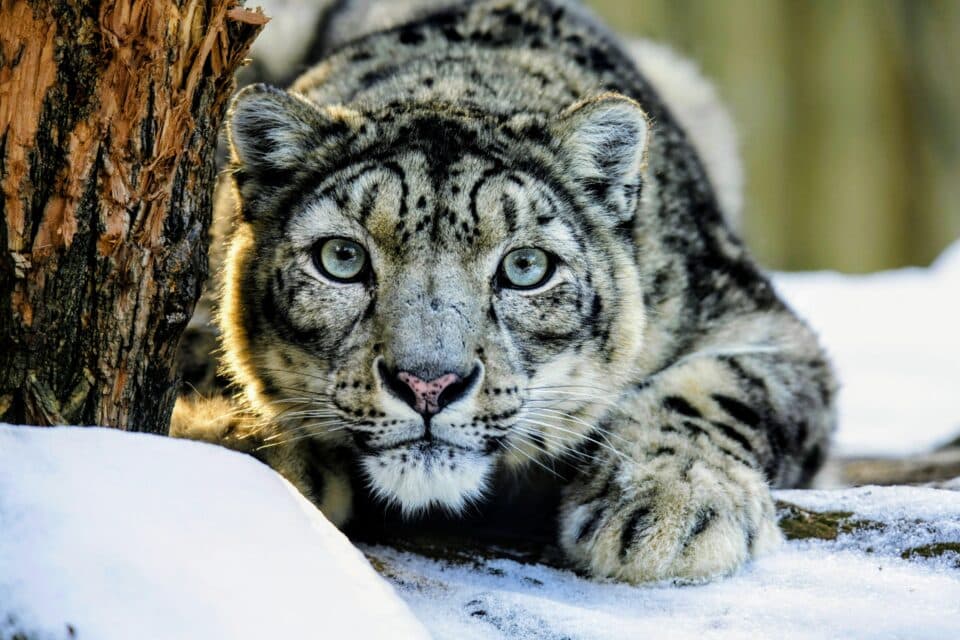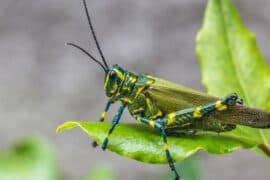
Exotic cats have surprising voice recognition ability
In the fascinating world of animal cognition, new research from Oakland University sheds light on the cognitive capacity of exotic cats.
The study reveals that non-domesticated Felidae species have the remarkable ability to distinguish between the voices of familiar and unfamiliar humans.
A research team led by Professor Jennifer Vonk and graduate student Taylor Crews set out to investigate the voice recognition abilities among Felidae, a family that includes exotic cats such as Bengal, Savannah and Serval cats, along with lions, tigers, and cheetahs.
Focus of the study
“There is little investigation of vocal recognition in exotic cats despite their prevalence in human care. The current study extends this research to 25 individuals of 10 non-domesticated felid species housed in human care,” wrote the study authors.
“The cat family, or Felidae, are of interest given their relatively asocial natural history coupled with their close association with humans in modern society.”
The researchers designed experiments to study the extent to which the animals could recognize and distinguish between the voices of their human caregivers.
The experts found that the cats showed a quicker, more intense, and prolonged response to voices they recognized, indicating a clear ability to discriminate familiar sounds from those of strangers.
This was observed regardless of whether the cats were called by their names or their rearing histories, pointing to an innate ability rather than one solely shaped by individual experiences.
Profound revelations about exotic cats
One of the most profound revelations of Professor Vonk’s work is the assertion that close human contact, rather than domestication, is associated with the ability of cats to discriminate between human voices.
This challenges the long-held belief that domestication is the primary driver of such cognitive abilities in animals. Furthermore, the study disrupts the stereotype of less social species being devoid of complex socio-cognitive skills.
“Non-group-living animals can exhibit social cognitive abilities such as heterospecific vocal recognition so we should not neglect the study of social cognition in less highly social species,” said Professor Vonk.
Broader implications
Considering the widespread housing of cats of all species in human care, the implications of this research are profound. The experts said that future studies are needed to determine whether cats also respond to familiar voices speaking unfamiliar phrases.
“This study contributes to the growing literature suggesting that adapting to a social lifestyle and human domestication are not the only important factors in predicting social cognitive abilities even when considering the ability to read human communicative cues specifically,” wrote the study authors.
“Exposure to humans may promote the development of abilities that researchers would not be able to observe in the wild, such as the ability of cats to discriminate familiar human voices. This study adds to the growing body of work showing that even non-domestic cats are not indifferent to familiar humans and may help dispel the notion that cats are aloof.”
More about exotic cats
As discussed above, exotic cats, with their unique patterns, mysterious origins, and behaviors that echo their wild ancestors, captivate the hearts of enthusiasts and pet owners worldwide.
These creatures, ranging from the well-known Bengal and Savannah to the lesser-known Caracal and Serval, bring a slice of the wild into our homes.
Defining exotic cats
Exotic cats refer to a group of felines that possess a distinctive wild lineage. These cats often exhibit physical and behavioral traits reminiscent of their wild ancestors.
The term can encompass hybrid breeds, such as the Bengal cat, which results from crossing domestic cats with wild Asian leopard cats, and purebred species that have been domesticated, like the Serval.
Popular exotic cat breeds
Bengal Cats
Bengal cats stand out with their striking leopard-like spots and vibrant personalities. They are highly active and require significant interaction and mental stimulation. Their intelligence and playful nature make them excellent companions for those willing to engage with their energetic spirits.
Savannah Cats
Savannah cats, a cross between a domestic cat and an African Serval, boast tall, lean bodies and large ears. They are known for their loyalty, often compared to dogs in their willingness to follow their owners and participate in household activities. Their high energy levels and curiosity necessitate a stimulating environment.
Caracal Cats
Though less common, Caracal cats are gaining popularity. Native to Africa, the Middle East, and Central Asia, these medium-sized wild cats are known for their distinctive tufted ears. While owning a Caracal is subject to strict regulations in many countries, enthusiasts admire them for their majestic appearance and agile prowess.
Care and requirements
Caring for exotic cats goes beyond the responsibilities of owning a typical domestic cat. These animals often require special diets that replicate their natural carnivorous feeding patterns in the wild.
Additionally, they need ample space to explore and exercise, along with enrichment activities to satisfy their instinctual hunting behaviors. Prospective owners must thoroughly research and prepare to meet these needs.
Ethical considerations and legalities
The ownership of exotic cats comes with significant ethical considerations. It’s crucial to ensure that owning such a pet does not contribute to the endangerment of wild species.
Many countries and states have stringent regulations or outright bans on owning certain exotic breeds, aimed at protecting both the animals and the public.
Before deciding to bring an exotic cat into your home, it’s essential to understand and comply with these regulations.
In summary, exotic cats offer a unique connection to the natural world, blending the mysterious allure of the wild with the affectionate bonds of domestic companionship.
However, they require dedicated care, respect for their needs, and a commitment to ethical ownership. For those drawn to their wild beauty and spirited natures, exotic cats can make rewarding, if challenging, companions.
The study is published in the journal PeerJ Life & Environment.
—–
Like what you read? Subscribe to our newsletter for engaging articles, exclusive content, and the latest updates.
—–
Check us out on EarthSnap, a free app brought to you by Eric Ralls and Earth.com.
—–












